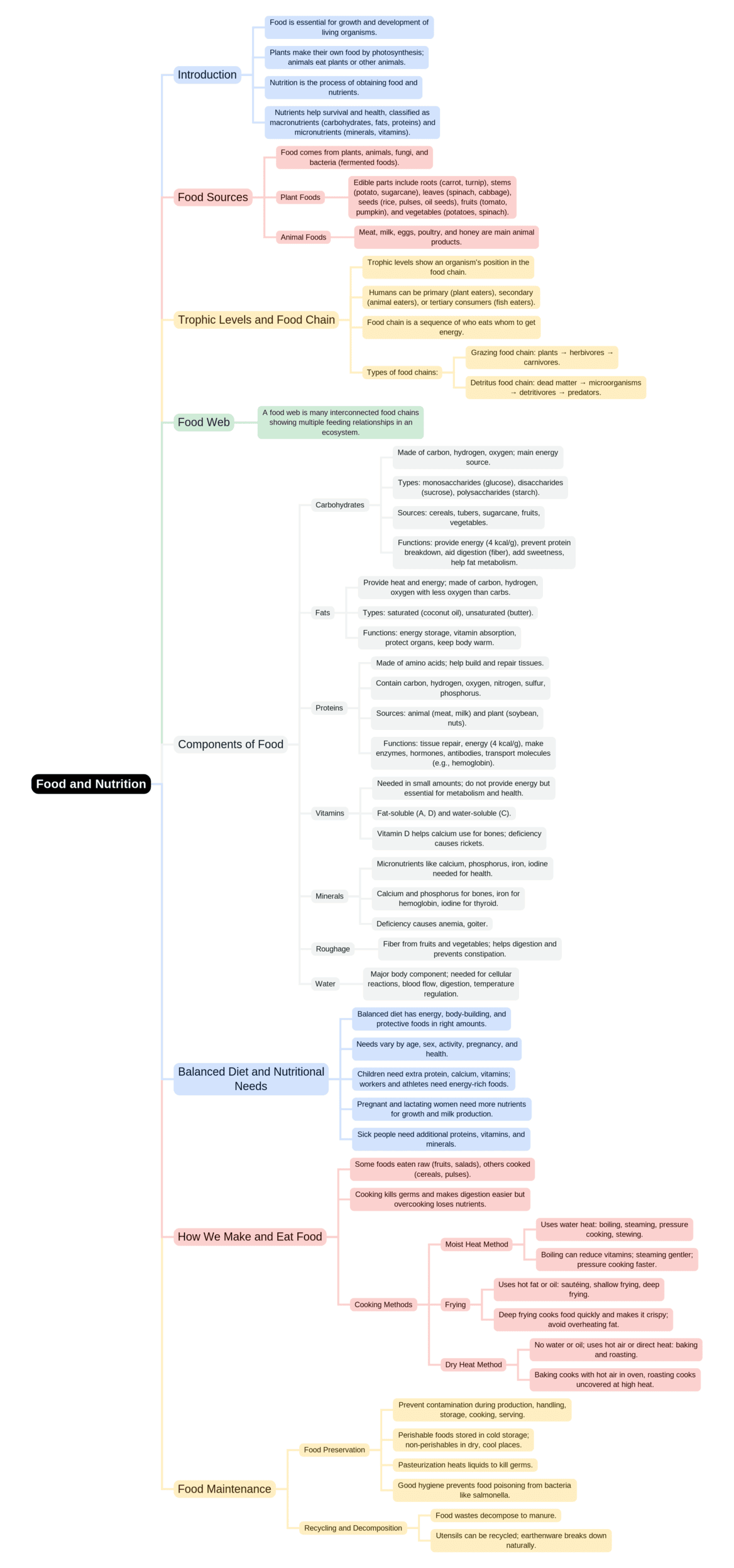CTET & State TET Exam > CTET & State TET Notes > EVS & Pedagogy Paper 1 for CTET & TET Exams > Mind Map: Food & Nutrition
Mind Map: Food & Nutrition | EVS & Pedagogy Paper 1 for CTET & TET Exams - CTET & State TET PDF Download

The document Mind Map: Food & Nutrition | EVS & Pedagogy Paper 1 for CTET & TET Exams - CTET & State TET is a part of the CTET & State TET Course EVS & Pedagogy Paper 1 for CTET & TET Exams.
All you need of CTET & State TET at this link: CTET & State TET
|
21 videos|139 docs|35 tests
|
FAQs on Mind Map: Food & Nutrition - EVS & Pedagogy Paper 1 for CTET & TET Exams - CTET & State TET
| 1. What are macronutrients and why are they important for our health? |  |
Ans. Macronutrients are nutrients that provide energy and are essential for growth and development. They include carbohydrates, proteins, and fats. Carbohydrates are the body's primary energy source, proteins are crucial for building and repairing tissues, and fats support cell structure and hormone production. A balanced intake of these macronutrients is vital for maintaining overall health and preventing nutritional deficiencies.
| 2. How does a balanced diet contribute to good health? |  |
Ans. A balanced diet includes a variety of foods in the right proportions, providing essential nutrients that the body needs to function optimally. It helps maintain a healthy weight, supports the immune system, and reduces the risk of chronic diseases such as heart disease, diabetes, and cancer. Ensuring a balance of macronutrients and micronutrients can enhance energy levels, improve digestion, and promote overall well-being.
| 3. What role do micronutrients play in nutrition? |  |
Ans. Micronutrients, which include vitamins and minerals, are vital for various bodily functions despite being required in smaller amounts compared to macronutrients. They support immune function, bone health, and energy production, among other processes. For example, vitamin C is important for immune health, while calcium is essential for strong bones. A deficiency in any micronutrient can lead to health issues and hinder overall nutrition.
| 4. How can individuals ensure they are getting enough fiber in their diet? |  |
Ans. Individuals can increase their fiber intake by consuming a variety of fruits, vegetables, whole grains, legumes, and nuts. Foods like beans, lentils, oats, and whole grain bread are particularly high in fiber. It is recommended to gradually increase fiber intake and drink plenty of water to help the digestive system process the additional fiber effectively, thus improving digestive health and preventing constipation.
| 5. What are the health benefits of hydration and how much water should one drink daily? |  |
Ans. Hydration is crucial for maintaining bodily functions, including regulating temperature, keeping joints lubricated, and transporting nutrients. The general recommendation for water intake is about 8 cups (64 ounces) per day, though needs can vary based on factors like activity level, climate, and individual health. Staying properly hydrated can enhance cognitive function, improve physical performance, and support overall health.
Related Searches





















